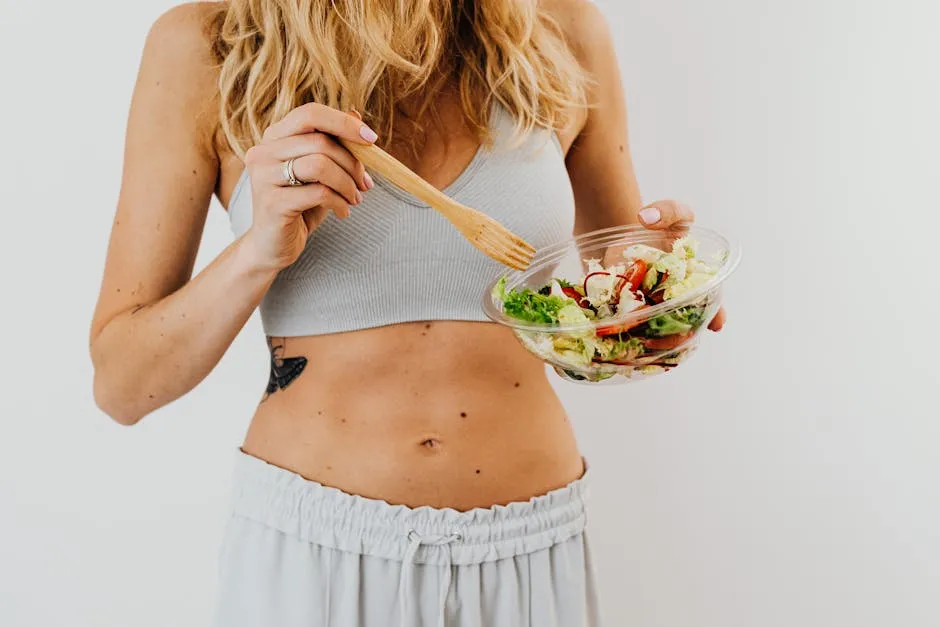
Why Do I Feel Guilty After Eating? Understanding and Overcoming Food Guilt
Introduction
Food guilt is a common experience in today’s society. Many people feel a wave of regret after eating, especially when indulging in comfort foods. This article will examine the reasons behind food guilt and offer practical strategies to help you overcome it.
Summary and Overview
Food guilt refers to the negative emotions that arise after eating certain foods, often linked to feelings of regret and shame. Psychologically, it can lead to a cycle of emotional eating and self-criticism. Societal pressures, such as unrealistic beauty standards and diet culture, play a significant role in fostering these feelings.
Throughout this article, we will explore the causes of food guilt, its psychological impacts, and effective solutions. You will learn how to recognize food guilt and develop a healthier relationship with food, ultimately leading to a more positive mindset towards eating. To kickstart your journey, consider reading Mindful Eating: A Guide to Rediscovering a Healthy and Joyful Relationship with Food. This book can provide further insights into how to cultivate a positive relationship with your meals.

Understanding Food Guilt
What is Food Guilt?
Food guilt manifests as feelings of regret and shame after eating, particularly foods deemed indulgent or unhealthy. Common emotional components include regret, anxiety, and self-blame. This guilt often arises from strict dietary rules, leading to a harmful cycle of negative thoughts and emotional eating.
Statistics show that a significant portion of the population experiences food guilt, with studies indicating that it affects individuals across various demographics. Emotional eating is often intertwined with feelings of guilt, complicating our relationship with food and leading to a distorted view of dietary choices. If you’re looking to tackle emotional eating, check out Emotional Eating: How to Overcome Emotional Eating. It’s a great resource to help you understand and manage those feelings.

Is Food Guilt an Eating Disorder?
While food guilt itself is not classified as an eating disorder, it can indicate deeper issues. Persistent feelings of guilt may signal the presence of disordered eating patterns, including binge eating disorder or anorexia. If you find yourself frequently overwhelmed by guilt after eating, it may be time to seek professional help. Understanding the difference between food guilt and eating disorders is crucial for mental health and emotional well-being.
Causes of Food Guilt
Societal Pressures and Diet Culture
Societal standards of beauty heavily influence our feelings about food. We often hear messages that promote thinness as the ideal body type. These ideals create unrealistic expectations around food and body image. Diet culture thrives on this pressure, labeling foods as “good” or “bad.” This binary thinking fosters guilt when we indulge in foods deemed unhealthy.
Social media amplifies these feelings. Influencers often promote restrictive diets and unrealistic body images. Research shows that over 70% of young women feel worse about their bodies after using social media. These comparisons can lead to a negative self-image, making it hard to enjoy food without guilt. Understanding these societal pressures is the first step in breaking free from food guilt. To help create a calm space while you navigate these feelings, consider using Essential Oils for Stress Relief, like Lavender or Peppermint, to ease your mind.

Internalized Food Rules
Many of us grow up with unspoken food rules. These rules often categorize foods into “good” and “bad.” For instance, you might think carbs are bad and veggies are good. Such beliefs stem from societal norms and past dieting experiences. They create barriers to a healthy relationship with food.
Restrictive dieting reinforces these harmful labels. When you label certain foods as forbidden, cravings can intensify, leading to binge-eating episodes. This cycle of restriction and indulgence often creates feelings of guilt and shame. Recognizing these internalized food rules can help you challenge them and foster a more balanced view of nutrition. To aid in your journey, a Journaling Notebook for Emotional Reflection can be an invaluable tool.

Emotional Triggers
Emotional triggers significantly impact our relationship with food. Stress, anxiety, and boredom often lead to emotional eating. Many people turn to food for comfort during tough times, only to feel guilty afterward. This cycle creates a complicated relationship with food.
Coping mechanisms are essential for managing these emotions. Instead of reaching for food, consider healthier alternatives like journaling or talking to a friend. By identifying your emotional triggers, you can break the cycle of guilt and develop healthier coping strategies. Understanding this connection can empower you to make more mindful choices around food. To enhance your mindfulness practice, a Meditation Cushion for Mindfulness Practices can be a great addition to your routine.

The Impact of Food Guilt
Psychological Effects
Food guilt can significantly affect your mental well-being. Chronic feelings of guilt often lead to anxiety and depression. When you constantly criticize yourself for eating certain foods, it harms your self-esteem. This negative self-talk creates a toxic cycle that is hard to break. You may start to associate your worth with your food choices. As a result, your body image can suffer, leading to further emotional distress. Understanding these psychological effects is crucial for improving your relationship with food. Recognizing the harmful patterns can help you reclaim your mental wellness. If you’re looking for additional insights, consider reading The Body Keeps the Score. This book delves into the connection between trauma and emotional health.

Behavioral Consequences
Food guilt can trigger unhealthy eating behaviors. Many people experience cycles of binge eating followed by strict restriction. This binge-restrict cycle can lead to disordered eating patterns that are hard to control. For instance, when you restrict certain foods, cravings may intensify, prompting overeating later. Over time, this can create a harmful relationship with food. You might feel trapped in a loop of guilt and shame, which can be exhausting. Addressing these behavioral patterns is key to fostering a healthier approach to eating. Understanding the consequences can help you make positive changes. To support your portion control, consider a Kitchen Scale for Portion Control to help you maintain balance in your meals.

Strategies to Overcome Food Guilt
Practicing Mindful Eating
Mindful eating is a powerful tool to combat food guilt. Start by slowing down during meals and savoring each bite. Pay attention to the flavors and textures of your food. This awareness can help you enjoy your meals without distractions. Before eating, ask yourself if you’re genuinely hungry or if emotions drive your cravings. Embrace the experience of eating, free from judgment. Set aside time to enjoy your meals without multitasking. Practicing gratitude for your food can also shift your mindset. Try to appreciate the nourishment it provides. By incorporating these mindful practices, you can reduce guilt and improve your relationship with food. To enhance your cooking experience, using a Digital Kitchen Timer for Mindful Cooking can keep you focused.

Reframing Food Beliefs
Many of us hold rigid beliefs about food. These beliefs often categorize foods as “good” or “bad.” This mindset can create unnecessary guilt after eating. To overcome this, start by challenging these internalized rules. Ask yourself where these beliefs come from. Are they based on personal experiences or societal pressures?
Embracing food neutrality is key. This means seeing all foods as equal without moral judgments attached. Flexibility in eating is also essential. Allow yourself to enjoy a variety of foods without guilt. This approach not only fosters a healthier relationship with food but also reduces anxiety around eating. By reframing your mindset, you can cultivate a more positive approach to food and nutrition. To assist in meal planning, consider a Meal Planning Notepad. It can help you organize your meals and reduce stress.

Allowing Indulgences
Giving yourself permission to enjoy all types of food is vital for well-being. It’s important to recognize that indulging occasionally does not equate to failure. In fact, these moments can bring joy and satisfaction. Balance is essential; allowing yourself treats can lead to a more sustainable, enjoyable diet.
Consider planning guilt-free treats that you genuinely enjoy. This could be a favorite dessert or a savory snack. Knowing you can indulge without guilt can alleviate anxiety around food choices. Remember, food is meant to be enjoyed, not feared! To make those indulgences even sweeter, consider a Gourmet Chocolate for Guilt-Free Treats. It’s the perfect way to enjoy a little something special without the guilt!

Seeking Professional Support
Working with a therapist or dietitian can significantly benefit your relationship with food. These professionals specialize in disordered eating and can provide valuable guidance. They help you uncover the root causes of food guilt and develop healthier coping strategies.
Support networks can make a huge difference. Talking to someone who understands your struggles can alleviate feelings of isolation. If food guilt is overwhelming, reaching out for professional help is a proactive step towards healing. You deserve to enjoy food without guilt or shame. For those moments of stress, consider a Weighted Blanket for Anxiety Relief to help you unwind.

FAQs
What is food guilt?
Food guilt refers to the negative emotions felt after eating certain foods. It often includes feelings of regret and shame. Many people experience food guilt due to societal pressures and harmful diet beliefs.
Why do I feel guilty after eating sweets?
Societal views often label sweets as ‘bad’ foods, contributing to guilt. This mindset associates pleasure with wrongdoing, making it hard to enjoy desserts without negative feelings. Understanding that all foods have value can help.
Is food guilt a sign of an eating disorder?
Food guilt itself isn’t classified as an eating disorder. However, intense and persistent guilt can signal disordered eating patterns, such as binge eating or restriction. Seeking help may be necessary if guilt impacts your well-being.
How can I stop feeling guilty after eating?
To reduce food guilt, practice mindful eating and challenge rigid food beliefs. Allow yourself to enjoy all foods without judgment. Focus on balanced nutrition and listen to your body’s cues.
Can seeking help reduce food guilt?
Yes, professional support can significantly help manage food guilt. Therapists or dietitians can provide guidance in overcoming negative thoughts about food and developing healthier eating habits. Don’t hesitate to reach out for support!
Please let us know what you think about our content by leaving a comment down below!
Thank you for reading till here 🙂
All images from Pexels




